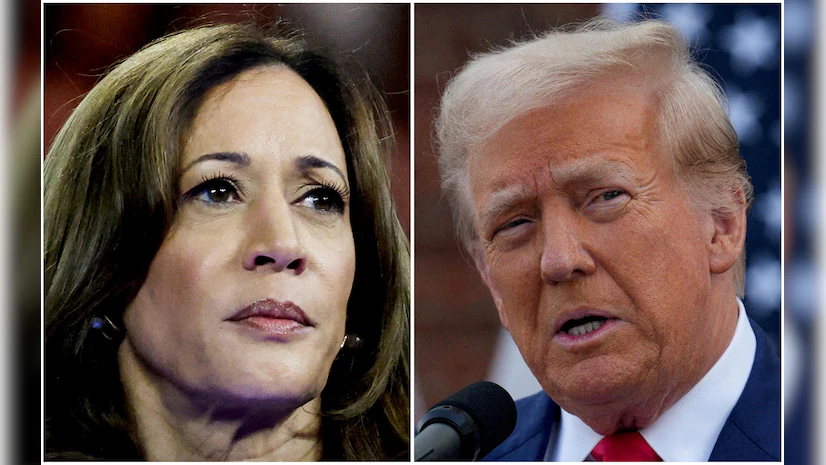Democratic presidential candidate Kamala Harris addressed a town hall in Pennsylvania on Wednesday, emphasizing that her administration would differ significantly from that of President Joe Biden’s. Meanwhile, Republican Donald Trump campaigned in Georgia, another crucial battleground state.
Harris’s efforts to distinguish her campaign from Biden’s come in response to polls indicating that the president is perceived as a liability for her candidacy, with many voters seeking a new direction as the November 5 election approaches. Throughout her campaign, Harris has largely sidestepped questions regarding the specifics of how she would diverge from Biden on policy matters. “My administration will not be a continuation of the Biden administration,” Harris stated during a televised CNN town hall. “I bring to this role my own ideas and my own experience. I represent a new generation of leadership on a number of issues and believe that we have to actually take new approaches.”
The town hall in Chester Township aimed to sway the remaining undecided voters in a closely contested race where even a small shift in votes could prove pivotal. Responding to various questions from attendees, Harris pledged to address rising grocery prices, advocated for ending the war in the Middle East, and labeled Trump a fascist, calling him a “danger to the well-being and safety of America.”
Harris also addressed her evolving stance on policies like fracking, stating that she does not believe in taking pride in a position when consensus-building is essential. She has repeatedly affirmed that she would not ban fracking if elected president, a change from her earlier position during her first presidential campaign in 2019.
When asked about the possibility of expanding the Supreme Court from nine to twelve justices, Harris replied, “I do believe that there should be some kind of reform of the court, and we can study what that actually looks like.”
According to tracking data from the Election Lab at the University of Florida, nearly 25 million voters have already cast their ballots through early in-person voting or mail-in ballots. Notably, several battleground states, including North Carolina and Georgia, set records for their first day of early voting last week.
“The votes in Georgia are at record levels,” Trump stated at a religious-themed “ballots and believers” event in Zebulon, Georgia. “The votes in every state, frankly, are at record levels. We’re doing really well and hopefully we can fix our country.”
In recent days, Trump has aimed to galvanize turnout among Christian evangelicals, urging them to overlook his past controversial remarks. Speaking in Zebulon, he remarked, “We’ve been doing this for nine years, and it’s down to 12 days.” If victorious on November 5, he would enter his second and final term.
Following his appearance in Zebulon, Trump rallied in Duluth, Georgia, alongside former Fox News star Tucker Carlson and former independent presidential candidate Robert F. Kennedy Jr. Country music star Jason Aldean also urged attendees to vote early, a practice Trump is gradually embracing after previously criticizing it.
Pennsylvania and Georgia are among seven battleground states that will determine the presidency, and both candidates are expected to focus much of their campaign efforts there in the coming days.
Earlier in the day, Harris reacted to remarks from Trump’s former White House chief of staff, John Kelly, who told the New York Times that the former president met the “general definition of fascist” and admired dictators. Harris characterized Trump’s comments, as reported by Kelly, as “deeply troubling and incredibly dangerous.” Trump’s campaign has denied Kelly’s assertions, labeling them as “debunked stories.”
Harris also sought to challenge Trump to a second presidential debate on CNN after she was considered to have won their first and only debate, which took place in September on ABC News. In the latest Reuters/Ipsos poll, Harris holds a slight lead over Trump, with 46% compared to his 43%.





